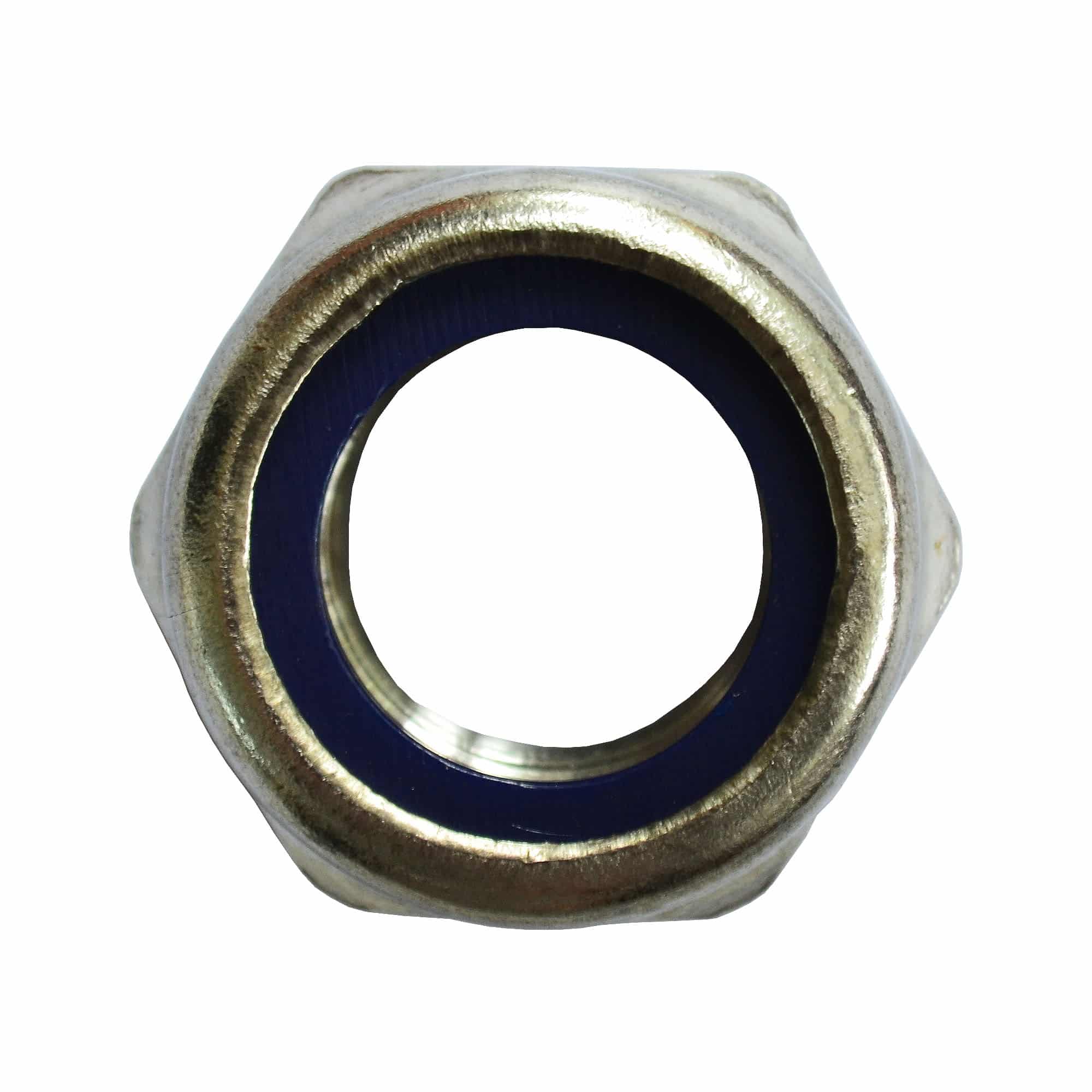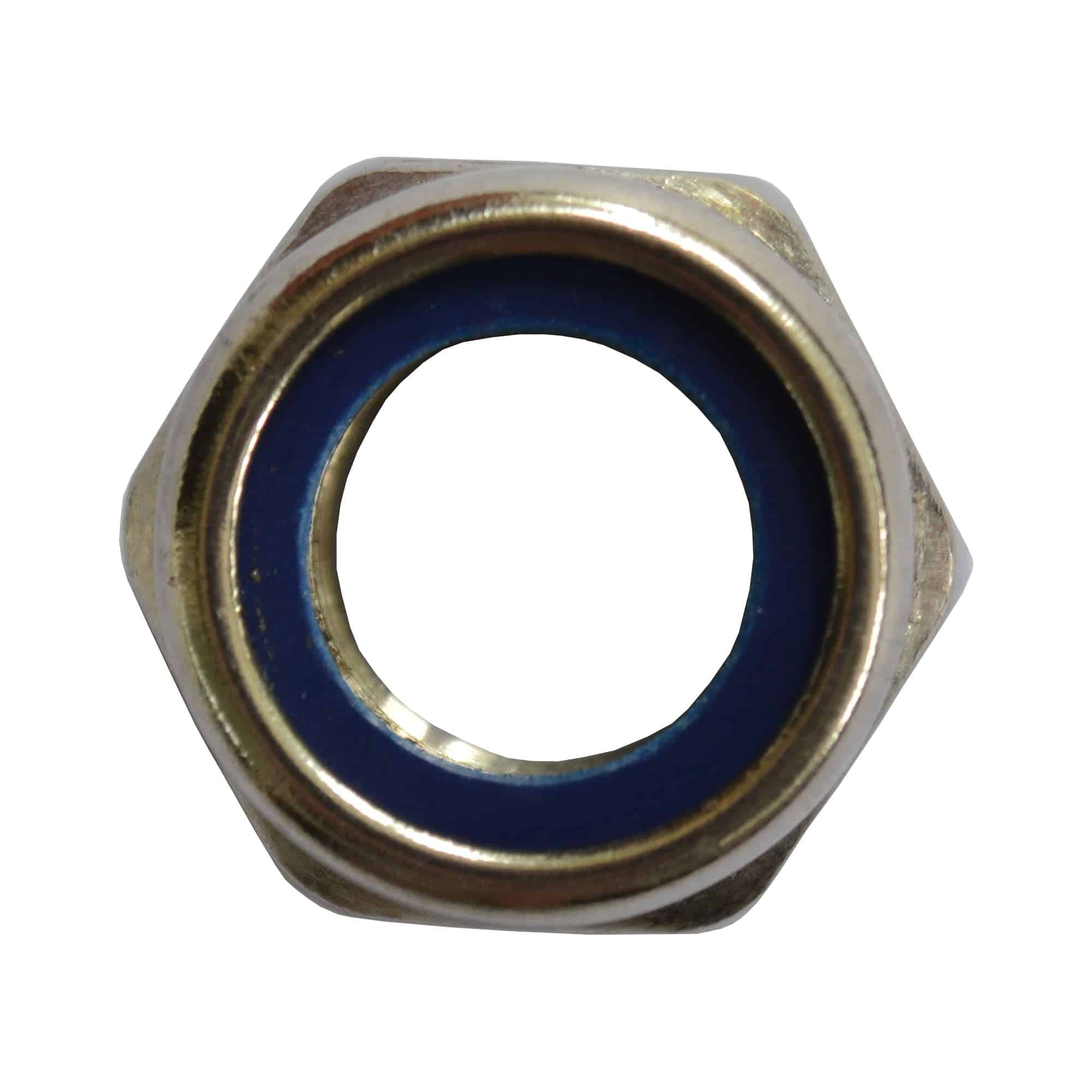- Massive Range
- FREE UK Delivery
- Rapid Dispatch
- Massive Range
- FREE UK Delivery
- Rapid Dispatch
- Massive Range
- FREE UK Delivery
- Rapid Dispatch
£1.08 – £21.95 inc VAT

Secure payments taken with:

This website is secured:
£ MULTIBUY SAVINGS – Order 3 For 10% Off
✔ Specialists In Rapid Shipments Of Any Size
✔ FREE UK Delivery Included
✔ Immediate Express Dispatch From Stock
✔ Tracked Delivery with Order Updates
✔ 30-Day Returns Accepted
@ ☏ Larger Pack Quantities Available
Are you tired of constantly replacing your old, rusty nuts and bolts? Well, have we got a solution for you! Introducing M5 Nyloc Nylon Nuts from Speciality Metals! Made with A4 Grade 316 Grade material, these nylon nuts are not only durable and versatile, but also low maintenance and corrosion resistant. Whether you’re working on a land-based project or need something to withstand harsh marine environments, these nuts will keep your project secure. Say goodbye to constantly tightening loose bolts and hello to the secure hold of these nylon nuts. Upgrade your hardware and make sure your project stays intact with M5 Nyloc Nylon Nuts from Speciality Metals!

Top quality stainless steel Nyloc nylon nuts supplied straight from Warrington, UK.
Speciality Metals offer a massive range of metal products to suit all levels of budget and any size of job. These nuts are offered to compliment our range of nuts, bolts & washers. We pride ourselves on our low prices and rapid fulfilment. Our fasteners are available from immediate stock, so dispatch would be fair immediate.
Speciality Metals’ M5 Nyloc Nylon Nuts are an excellent fastening solution for a wide range of applications. Nylon nuts crafted from A4 and 316 grade materials provide exceptional durability and versatility. They are low maintenance and highly corrosion resistant, so they are ideal for harsh environments. Designed to lock securely in place, these nylon nuts ensure the stability and reliability of your project. In addition, they provide a secure fastening solution for marine applications due to their resistance to marine environments. Your projects will remain secure and reliable with these nylon nuts thanks to their outstanding properties.
Key product details:
Speciality Metals is known to be the United Kingdom’s best up-and-coming small-quantity metal company.
Furthermore we stock a vast range of plain wire mesh and perforated metal options that compliment our sheet metal range perfectly.
Over 50,000 customers of Specialty Metals are provided with fast, friendly customer service every year. We’re the place to try when you need metal of any shape and size. We’re based in Warrington, UK. We pride ourselves on our rapid turnaround and a large range of options.
Installing Nyloc nuts generally doesn’t require special tools; standard wrenches or socket sets are usually sufficient for the job. However, because Nyloc nuts have a nylon insert that creates resistance, you might find that manual installation requires a bit more effort compared to standard nuts.
For larger projects or for applications requiring precise torque settings, a torque wrench may be beneficial. A torque wrench allows you to tighten the Nyloc nut to a specific torque value, ensuring that the fasteners are neither too loose nor too tight, both of which could lead to issues in the application.
In automated or industrial settings, specialised nut drivers or pneumatic wrenches might be used for quicker and more uniform installation. However, these are not strictly necessary for most common applications.
Nyloc nuts, or nylon insert lock nuts, function by using a nylon insert as a locking mechanism to prevent the nut from loosening once it has been tightened onto a bolt. When you thread a Nyloc nut onto a bolt, the bolt’s threads engage not just with the threads of the nut but also with the nylon insert that resides in the top part of the nut. The nylon insert is slightly smaller in diameter than the bolt threads, which means that as you tighten the nut, the nylon is deformed around the threads of the bolt.
This deformation creates a sort of “interference fit,” adding resistance and making it more difficult for the nut to back off or loosen unintentionally. The elastic property of the nylon insert also allows it to conform closely to the threads of the bolt, increasing the nut’s resistance to vibration and other forces that tend to loosen fasteners over time.
Because of this locking mechanism, Nyloc nuts are especially useful in applications where vibration, dynamic loads or other forces could potentially cause a standard nut to loosen. However, it’s important to note that the nylon insert can degrade under extreme conditions such as high temperatures or exposure to certain chemicals, so consideration of the operating environment is crucial when selecting these nuts for a specific application.
Nyloc nuts are designed to resist loosening through the use of a nylon insert that acts as a locking mechanism. While this design is effective for maintaining a tight connection, it does raise questions about reusability. Generally, Nyloc nuts are not recommended for multiple uses, especially in critical applications, because the nylon insert can lose its elasticity and effectiveness after being engaged and disengaged a few times.
Each time a Nyloc nut is installed and then removed, the nylon insert experiences some level of wear and deformation. Over time, this can reduce the nut’s ability to maintain a secure lock. The loss of locking ability can be even more pronounced in high-load or high-vibration environments, where the integrity of the fastener is crucial.
However, in less critical applications and with careful inspection, some people do reuse Nyloc nuts. If you choose to do so, it’s essential to check both the nylon insert for signs of wear or damage and the threads of the nut and bolt for any deformities or stripping. Always adhere to manufacturer guidelines and engineering specifications, particularly in high-stress or safety-critical applications, where reuse is generally not advised.
For the most reliable results, especially in critical or high-stress applications, it’s best to use new Nyloc nuts to ensure that the locking mechanism performs as intended.
Nyloc nuts are designed to be relatively maintenance-free once installed, thanks to their nylon insert that provides a locking mechanism. However, there are some general guidelines for ensuring their optimal performance:
Inspection: Periodically inspect the Nyloc nuts for signs of wear, corrosion or damage, especially if they are used in high-stress or corrosive environments. This is especially important if you have decided to reuse them, which is generally not recommended for critical applications.
Replacement: If you find signs of wear on the nylon insert or corrosion on the nut itself, replace it immediately. Also, if you’ve had to remove a Nyloc nut for any reason, consider replacing it with a new one to ensure that the locking mechanism is effective.
Proper Installation: Make sure that the Nyloc nuts are installed correctly, using the right tools and to the correct torque specifications. Over-tightening can deform the nylon insert and reduce its effectiveness, while under-tightening may not engage the locking mechanism properly.
Environmental Considerations: Nyloc nuts are available in different materials, including stainless steel grades like 316, that offer varying levels of corrosion resistance. Choose the right material for your specific application, especially if it involves exposure to chemicals or high temperatures.
Check Torque: In applications where precise torque is essential, periodically check that the Nyloc nuts are maintaining the required torque levels. A torque wrench can be used for this purpose.
Consult Manufacturer Guidelines: Always adhere to any maintenance guidelines or schedules provided by the manufacturer or dictated by the specific application.
Avoid High Temperatures: Keep in mind that the nylon insert is not suitable for high-temperature applications, so regular checks are necessary if they are used near sources of heat.
Check out our recent article ‘Unlocking the Benefits of Nyloc Nuts: The Ultimate Guide‘ for a deeper dive into nyloc nuts. Our goal for our blogs and help guides is to answer as many questions as possible to help to explain the possibilities of mesh to our customers.
We are also very proud of our ever expanding YouTube channel.
Contact us today if you have any questions at all. We are always really keen to help in any way that we can.
We are also very proud of our highly popular eBay store, check us out there too.
Thank you for checking out our product.
£13.50 – £260.40 inc VAT

£13.50 – £260.40 inc VAT

Speciality Metals
Unit 1, Farrell Street, Warrington,
Cheshire, WA1 2WW, United Kingdom
Quick Links
Payment Options
